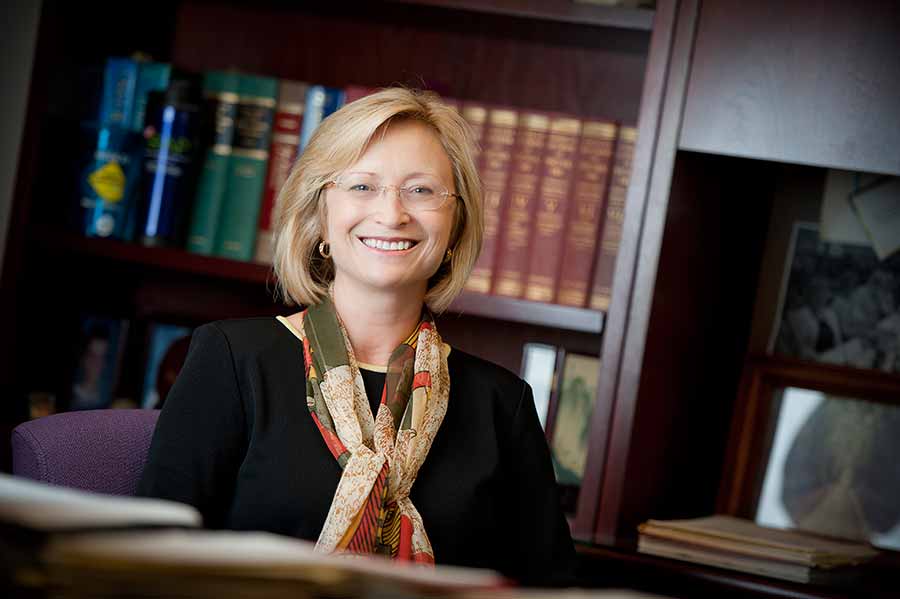
By:
- Paul K. Mueller
Published Date
By:
- Paul K. Mueller
Share This:
UC San Diego’s New Office Is ‘Your Partner in Innovation’
Office of Innovation and Commercialization Aims to Speed Ideas and Inventions to National and World Markets

Paul Roben, associate vice chancellor for research at UC San Diego and head of the newly created Office of Innovation and Commercialization (OIC)
“Innovation can be defined as bringing together people with ideas that meet a need in society or the marketplace,” says Paul Roben, associate vice chancellor for research at UC San Diego and head of the newly created Office of Innovation and Commercialization (OIC).
Innovation is a cornerstone of vibrant social and economic development, he says, and OIC has crafted an innovation strategy to ensure UC San Diego’s position as a key driver of regional development.
Roben is launching a series of initiatives to “drive innovation across all areas of campus, and to speed university innovations to the nation’s – and the world’s – marketplaces, and to society in general.”
The new organization will bring the offices of technology transfer, intellectual property, innovation design, and industry partnering under one roof.
Chancellor Pradeep K. Khosla initiated the OIC to support UC San Diego’s long-term goals. “This is a key part of our campus Strategic Plan,” he said. “We are a student-centered, research-focused, and service-oriented public university, and the Office of Innovation and Commercialization supports each of those key missions and, further, helps boost our role as a powerful regional engine of economic growth.”
Sandra A. Brown, Vice Chancellor for Research, to whom Roben reports, says the new office has the aggressive goal “to establish a campus-wide integrated innovation platform that builds a dynamic innovation culture and supports a vibrant regional ecosystem, thereby contributing to a sustainable society and accelerating the commercialization of UC San Diego inventions.”
Roben, who served as a key member of Ireland’s Innovation Taskforce and co-authored a national economic-development plan for Ireland, worked as Senior Director of Office Technology Development at the Salk Institute before joining UC San Diego. That experience has given him a vision for boosting the “innovation culture” at the university.
At its heart, innovation involves people coming together with complementary expertise and multidisciplinary thinking to create something truly innovative. It is neither a single technology, nor an isolated business model, says Roben. Rather, it is at the intersection of these, and other disciplines, that innovation occurs. OIC seeks to create an environment that encourages and supports this type of creativity.
“We are focused on five ‘core drivers’ in our mission to create this environment,” Roben says.
First, the new office will facilitate interactions on all levels between researchers here at UC San Diego and investors, companies, entrepreneurs, local cities and the general public.

Sandra A. Brown, Vice Chancellor for Research
Second, says Roben, the OIC will align and support campus-wide resources. “There are many effective resources on campus now, but they’re not always aligned to the best advantage. We support interactions among these existing resources to help build our innovation and commercialization platform.”
Third, the OIC will transform the functions that manage “agreements” that transfer technology to the private sector. “We want these functions to be relationship-centered and customer-oriented – to get the technologies into the hands of those who can best develop them for the benefit of society and the marketplace.”
Fourth, OIC is committed to inspiring and empowering students, researchers and faculty to engage in the innovation process. Through a variety of educational and program opportunities, the office seeks to ignite the spark of entrepreneurism in those who have not yet considered this path, and support those who are already engaged in the process.
And last, but certainly not least, says Roben, is a commitment to regional awareness and education. “Every program will be integrated into the overall platform, and every program will have a communications strategy to raise awareness of innovation across the region. And we will publicize over all available media, including peer-to-peer contacts, our challenges and our successes.”
“Chancellor Khosla and Vice Chancellor Brown have asked us to dramatically strengthen our campus culture of innovation,” Roben says, “to help simplify, coordinate, and direct the many superlative programs already hard at work here.
“If a student, or a postdoc, or a faculty member – or an enterprising individual from the community – has a promising idea, we will be the place where that person starts. And we expect to attract, and to help, quite a few.”
Share This:
You May Also Like
Stay in the Know
Keep up with all the latest from UC San Diego. Subscribe to the newsletter today.


